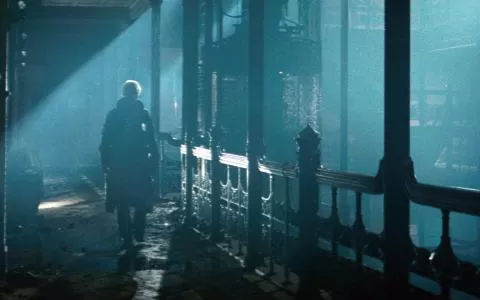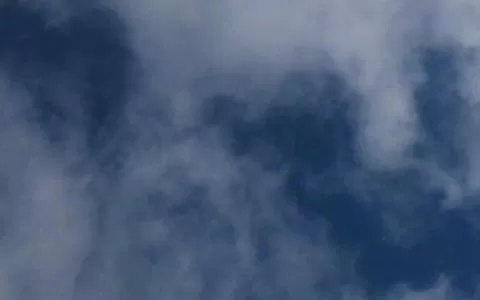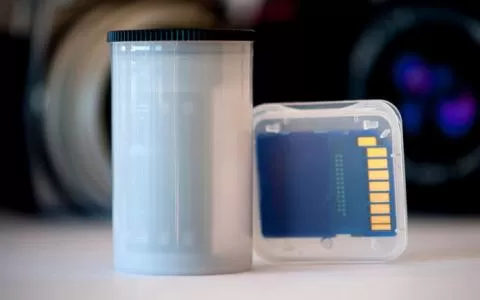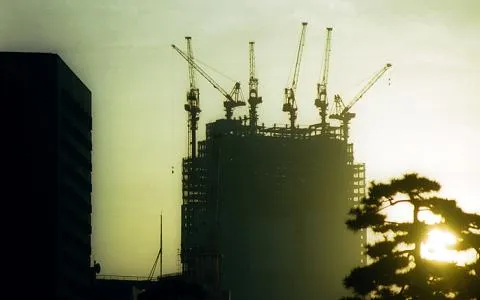Shooting film is not the rite of passage to becoming a "real" photographer!
I'm 53 years old and shoot digital only and have done so for almost a decade. But I started with film when I was a teenager and grew up shooting film for 20 years or more – and even made money doing so.
And I still shoot like a film shooter in many ways, using the techniques that I learned when I first started photographing.
But I certainly don't miss red lamps, the smell of stop bath or the feeling of fixer on my fingers!
And I don't miss the waiting time while the lab developed my slides or having to let the client have my originals in order to be able to print them in a book or a magazine.
Small memory cards my *beep*!
I also read another piece of advice that would make you better: Use a small memory card!
Why, oh why?
Limiting your number of images will only disable you from keeping on shooting if something good appears. I love my 1.5K image counter and being able to shoot for days. Why should I dig out my old 500 Mb cards and severely limit my number of pictures? If I want to impose a limit, I can just tell myself: 36 frames only. Should the situation of a lifetime then appear, I can just shoot away.
And needless to say:
The author of course also recommended film... The remaining advice is sound enough: learn to compose, shoot with others and share your images. That will make you better!
I love digital
I love the speed and convenience of digital.
I love the immense leeway and freedom of “developing” in Lightroom and post processing in Photoshop.
I love the quality of the end product.
When I look around on the web and read books and magazines, I often read people recommending that you shoot film to learn the basics and learn to ”really” take pictures.
Really?
I find this advice downright stupid, and pity the ones who take it and think that shooting film is the rite of passage to become a real photographer.
Sure I see the point. Using a film camera and shooting film will force you to slow down and economize because suddenly you only have 36 frames or even less. You have to learn to trust yourself and have confidence because you can't see the result before the images are developed. It will make you think more before you expose because film is expensive and the process is slow. And you will learn some basics about images by dodging and burning in a darkroom.
But honestly, dear reader!
Same limitations
You can just as easily impose the same limitations on your digital shooting as film does - just without owning a film camera, buying film and going through the process of developing and printing (or more likely: having someone do it for you). And not least: you will still have all the benefits and the freedom of digital.
I love film. I find that many images shot on film are excellent, and I can see why some photographers like film. Some film images are stunningly beautiful, and some processes give film pictures a very special look. But it's like driving a horse drawn carriage - fun and romantic, a nice trip and a ritual in itself, but not really optimal if your aim is simply to get from A to B.
It's not like digital keeps you from thinking, doesn't allow you to compose or forces you to chimp. It's not mandatory to post process your images into something they weren't when you shot them, editing, compositing, adding fancy filters and all kinds of voodoo and hexerei in post.
Five simple rules
- Compose, don't crop
- Expose, don't post process
- Arrange, don't edit
- Shoot singles, don't burst
- Trust yourself, don't chimp
Five simple rules
You can still think before you shoot and if you adhere to some simple rules, you can "filmify" your digital shooting, slow down the pace and become a better and more confident photographer.
- Compose, don't crop. Look in the viewfinder and create your picture there.
- Expose, don't post process. Make sure the settings are right. Over and underexpose according to the scene, and don't let Auto run the game.
- Arrange, don't edit. Add and remove physical things in the scene before shooting rather than adding them in post. Smoke, light, glare, objects, highlights and shadow and whatnot. Control them before taking your picture.
- Shoot singles, don't burst. Learn to press the shutter in the right split second in stead of holding down the button and hoping for the best. Some really high speed action scenes might require 9 FPS, but most scenes don't.
- Trust yourself, don't chimp. Trust yourself. Have confidence. You do not need to check every single frame the second it has been shot.
Take one good and well prepared, well exposed image at the right moment rather than spraying and praying, shooting ten at five or nine frames per second - of which one just by chance might be OK. Modern SLR-cameras are very responsive, and if you press the shutter release when the subject is where you want it, that's what you will get on your picture.
You can actually do that with a digital camera!
You can prepare for a shoot in many ways - whether it's digital or film doesn't make any difference
Fret not my digital friend
And to all you who never spooled your own bulk film or used an enlarger: Not having developed and printed does NOT make you a worse photographer!
And doing so now will not necessarily make you better.
Sure it can add to the experience and teach you something, and you might become better, but not because you inhale fixer fumes and spend hours under a red bulb. That would be like saying that cooking over open fire will make you a better cook or riding on you home built bike makes you a better biker. Of course you can become a world class cook/biker/photographer using modern gear and modern methods.
Shooting film, developing and printing is an experience in itself, but do it because you want to shoot film, develop and print or because you want some qualities inherent to film and photographic prints. Not because you think it will make you a better digital photographer or yield better images. Swearing away the benefits and the convenience of modern, digital photography is downright silly if the aim is to get better pictures. Digital will in all ways help you do that - and make the process way, way easier at the same time.
Thinking, planning, shooting, critiquing yourself, getting critiqued by others and then thinking, planning and shooting some more will make you a better photographer.








